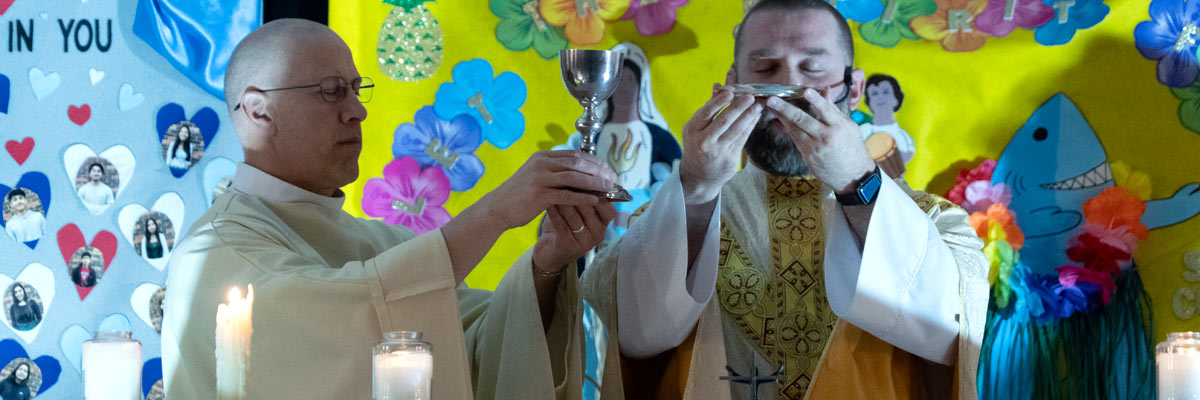Official Website of the
Catholic Diocese of Little Rock
Friday, 22nd Week of Ordinary Time, Cycle 2, 2024
Published: September 6, 2024
Bishop Anthony B. Taylor preached the following homily during the opening Mass for Year Two of the School of Spiritual Direction Formation at St. John Catholic Center in Little Rock on Friday, Sept. 6, 2024.

Bishop Taylor
There are two kinds of plants: annuals and perennials. Annuals live just one season and then die — for instance, tomato plants. Their seeds make it through the winter, but — to use a technical phrase — there is radical discontinuity from one year to the next.
The word "radical" means "to the roots" — discontinuity all the way down to the roots. This year's plant will not have last year's roots, it will be an entirely different plant. Perennials, on the other hand, live on for years — for instance, grape vines. We prune perennials in the fall, cut back that year's excess growth, but there is continuity in the roots from one year to the next. It'll be the same vine, have the same roots as before.
In today's Gospel we have the biggest question the early Church had to answer: Did Jesus intend to found a new religion or was he just pruning the old religion of its excess growth so it could produce better fruit, but still the same plant with the same roots? Discontinuity: a new religion — or continuity, improving Judaism but not replacing it?
But not so the Protestant reform itself, which was an instance of ideology-driven, radical discontinuity that cut the Church to its very roots. They discarded seven books of the Old Testament, most of the sacraments, the pope and 1,500 years of Christian tradition.
Considering that we eventually separated from Judaism, you may be surprised to learn that in the Gospels it is clear that continuity is what Jesus had in mind. He came to prune the old religion, improve it ... to replace parts of it, discarding wrong attitudes and abuses — but not to replace or discard Judaism as a whole.
This is the context of today's Gospel — which seems to say the opposite. Here Jesus emphasizes the incompatibility of his reforms with all that needs to be changed: "You don't sew a piece of unshrunken cloth on an old coat ... you don't pour new wine into old wineskins, otherwise you'll ruin them both!"
And elsewhere St. Paul writes: We are ministers of a new covenant, not of letter but of the spirit; for the letter brings death, "but the spirit gives life." A change of attitude, a radical pruning perhaps, but not a break with Judaism — even though that is what eventually happened. And since then there have been other even sadder radical breaks: the Catholic/Orthodox and Catholic/Protestant splits, and many more splits within Orthodoxy and Protestantism for which there is also no justification in Jesus' teaching.
In every age there are people who advocate changes in the Church, which is beneficial to the degree that they serve to prune the Church: eliminating abuses so that we can produce better fruit for the Lord; making us more faithful to Jesus' teaching. Vatican II pruned us 40 years ago in a way that was in complete continuity with all that went before, just like the reforms of the Council of Trent following the break with Protestantism.
But not so the Protestant reform itself, which was an instance of ideology-driven, radical discontinuity that cut the Church to its very roots. They discarded seven books of the Old Testament, most of the sacraments, the pope and 1,500 years of Christian tradition.
And today there are other voices that clamor for other radical changes that also have no basis in the teaching of Jesus, for instance: abortion and homosexual marriage and women's ordination — changes that like a patch of unshrunken cloth, would rip apart the very fabric of the Church, changes that we must resist because they would burst the 2,000-year-old wineskins of our faith, wineskins that were filled with the new wine of the new covenant by Jesus himself as referred to in today's Gospel.









